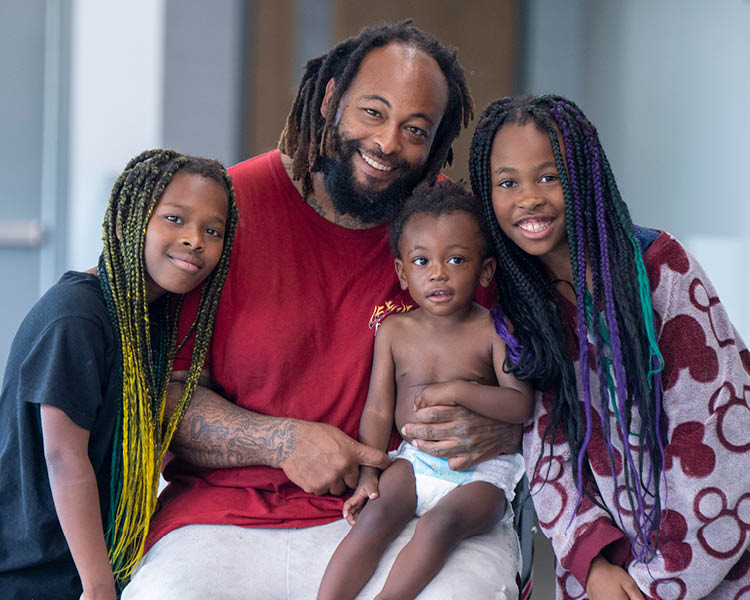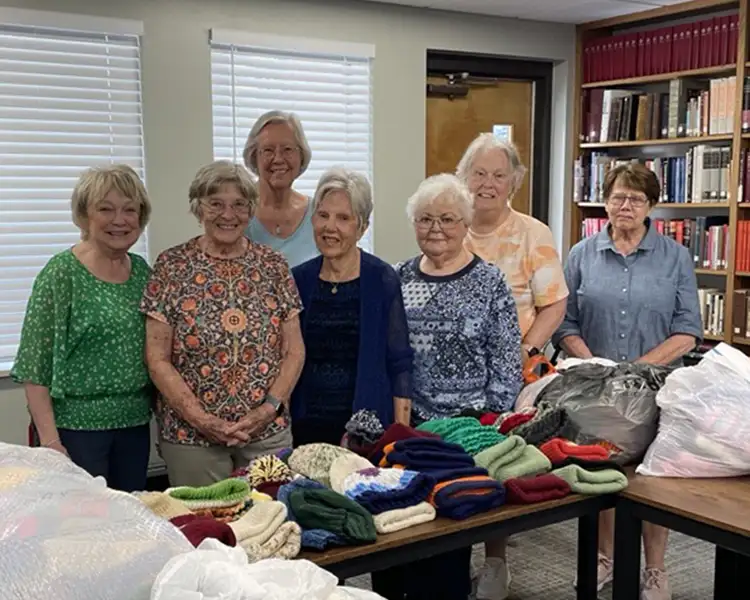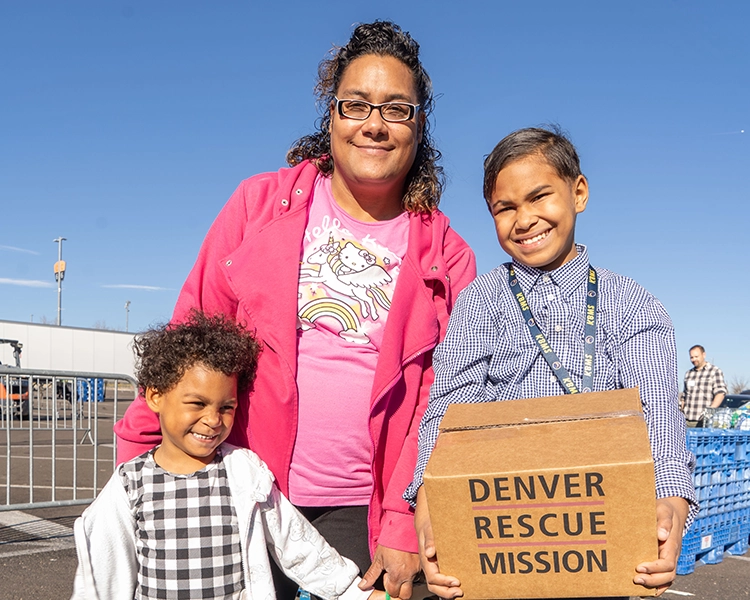Most of our guests and participants have experienced the effects of traumatic events in their lives.

Baudelio
“There was one day when I was maybe 18; I had to pull my uncle out of a restroom after he overdosed. He was like a bodybuilder-type of dude, but when I pulled him out, he was skinnier than I was because of his addiction. To see somebody from that level to this was hard to deal with. It was a lot of trauma.”
How the Mission Helped
“I do really like the counselor that I have. I never talked about some of the things I’ve been through with other people, and I can talk to her.”

Thurman
“I had a daughter who got run over by a car in front of my house by a kid going 60 miles an hour in a subdivision. She was three-and-a-half. I started drinking really bad because of it.”
How the Mission Helped
“The Mission means the world to me because it saved my life more than once. Without them, I don’t know where I’d be right now.”
Our Approach to Trauma-Informed Care

Environment of Awareness
The environment we create within our facilities through layout, structure, decoration, and more are important in providing a sense of safety and comfort for our guests.
For Example
Colorado landscape photos and Bible verses on the walls to provide a sense of calm and encouragement.
Identifying Needs
Our intake team works hard to discern our guests’ individual needs as soon as they come through our doors. For example, if someone gets stressed by the group setting in our shelters, we offer ear plugs, an eye mask or a quieter area to sleep in.
Pictured (right): Joseph with the keys to his new apartment.

Intentional Language
We observe and phrase questions and responses with, “I’ve noticed…” or “What I see is…” rather than assuming or putting words in people’s mouths. Instead of asking: “Why are you mad?” We might say: “I noticed you look distressed earlier, how are you, how can I help?”
Motivational Conversations
We ask questions that lead to people making decisions and choices on their own. Asking them and having a conversation about their options leads to empowerment and self-sufficiency.
Michael struggled with alcohol addiction from the age of 16 until 58 years old.
“The last thing I want to do is go back to that wretched life, the mind that I was living in. I may not even be alive right now if it wasn’t for this program. I give them so much credit.”
-Michael

Michael struggled with alcohol addiction from the age of 16 until 58 years old.
“The last thing I want to do is go back to that wretched life, the mind that I was living in. I may not even be alive right now if it wasn’t for this program. I give them so much credit.”
Michael
Understanding Trauma
Definition: The response to an event(s) or set of circumstances that is experienced by an individual as physically or emotionally harmful or life threatening and that has lasting, adverse effects on the individual’s functioning and mental, physical, social, emotional, or spiritual well-being.*
Common traumatic events and responses our guests and participants have experienced:
Events
- Homelessness
- Addiction
- Domestic Violence
- Sexual Abuse
- Racial or Political Discrimination
- Severe Illness
- COVID
- Job Loss
- Financial Instability
- Accidents and Natural Disasters
- Relational Issues (like betrayal, infidelity or neglect)
- Grief and Loss
Responses
- Anxiety
- Depression
- Anger
- Avoidance
- Irritation
- Uncertainty
- Overwhelm
- Worry
- Disconnection
- Lack of Motivation
What is Trauma-Informed Care?
Trauma-informed care involves understanding the effects of traumatic events, addressing them without re-traumatizing and helping survivors rebuild control, empowerment and resilience.

At The Crossing
Our team of counselors and staff use intentional and interactive forms of therapy for our participants that include:

Therapy Animals
Meet George, Our First Therapy Dog!
Often if our participants are closed off to talking to people, they might not be closed off to animals, who create a unique sense of comfort.
Mindful Movement
Weekly class to practice mindful movement and stretching. When reprocessing traumatic experiences, it is important for participants to also tap into their body, as movement is healing in many ways.
Process Groups
Process groups provide a space for individuals to have a two-way conversation so they can process what’s going on in their lives by talking in groups that include:
- Anger Management
- Cognitive Behavioral Therapy
- Grief and Loss
- Caregiver Education Support
- Relational Skills
- Financial Skills
- Building Character (for youth)
Since 2020
Increased:
Group Hours Offered, Attendance at Groups, Program Retention
Decreased:
Relapse Rate
Eye Movement Desensitization and Reprocessing (EMDR)
New Life Program Counselor Olivia Llewelyn-Carter is trained in EMDR therapy, which includes verbally processing traumatic life events, stage by stage, while engaging in eye movement.
“The idea is that back-and-forth movement helps decrease the intensity of that memory. So eventually, they can comfortably talk about the memory without feeling anxious, depressed, guilty, or shameful. They get to a point where they’re sleeping better, and they have no urges to use anymore because they’re reprocessing the memories that initiated that avoidance and addiction in the first place.”
Olivia

Our Care Doesn’t Stop There
We offer critically important aftercare by:
- Writing program graduates letters of encouragement
- Following up six months to a year after leaving or graduating
- Connecting them with up-to-date resources outside the Mission, such as where to find a counselor or therapist, church or anything else they might need.
Caleb’s Story
Read Caleb’s story on how Fort Collins Rescue Mission helped him after a traumatic experience in his life.

Caleb’s Story
Read Caleb’s story on how Fort Collins Rescue Mission helped him after a traumatic experience in his life.
Donate Today!
Thank you for coming alongside those who’ve experienced trauma. Give today to help others rebuild control, empowerment and resilience.








